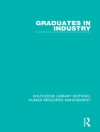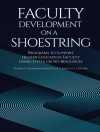Today’s world is one marked by the signs of digital capitalism and global capitalist expansion, and China is increasingly being integrated into this global system of production and consumption. As a result, China’s immediate material impact is now felt almost everywhere in the world; however, the significance and process of this integration is far from understood. This study shows how the a priori categories of statistical reasoning came to be re-born and re-lived in the People’s Republic – as essential conditions for the possibility of a new mode of knowledge and governance. From the ruins of the Maoist revolution China has risen through a mode of quantitative self-objectification.
As the author argues, an epistemological rift has separated the Maoist years from the present age of the People’s Republic, which appears on the global stage as a mirage. This study is an ethnographic investigation of concepts – of the conceptual forces that have produced and been produced by – two forms of knowledge, life, and governance. As the author shows, the world of China, contrary to the common view, is not the Chinese world; it is a symptomatic moment of our world at the present time.
Tabela de Conteúdo
Acknowledgements
Preface
Chapter 1. Making up numbers
PART I: MORAL MATHEMATICS
Chapter 2. The mentality of governance
- The weight of numbers
- The obesity of statistical yearbooks
- The law for statistical work
Chapter 3. The facticity of social facts
- A new life of facts
- Socialism and statistics
- Let facts speak for themselves
PART II: STATISTICS, METAPHYSICS, AND ETHICS
Chapter 4. Discipline and punish
- Professor Dai and his statistical revolution
- The colonization of social sciences
PART III: REASON AND REVOLUTION
Chapter 6. The taming of chance
- Change and chance
- Land and luck
- Fortune and fate
Chapter 7. Interiorization
- Stories and memories (genealogy of history I)
- Temporality and subjectivity (genealogy of history II)
- Class and classification (genealogy of history III)
Chapter 8. Exteriorization
- Epistemology I: Anti-humanism and narcissism
- Epistemology II: Objectivity and corporeality
- Epistemology III: Mass and massification
Bibliography
Index
Sobre o autor
Xin Liu is Professor of Anthropology at the University of California at Berkeley and Fellow of the Sociology Division, the E-Institutes of Shanghai Universities. He is the author of In One’s Own Shadow (University of California Press, 2000) and The Otherness of Self (University of Michigan Press, 2002); and editor of New Reflections on Anthropological Studies of (greater) China (IEAS, UC Berkeley, 2004).












